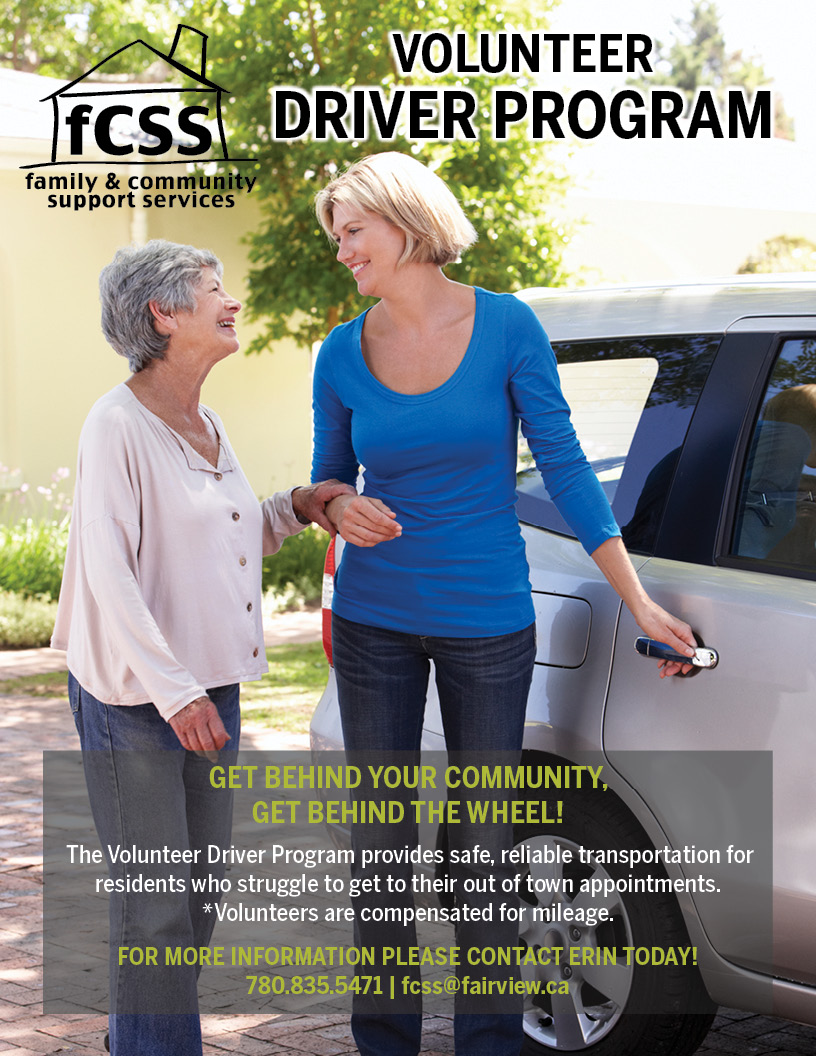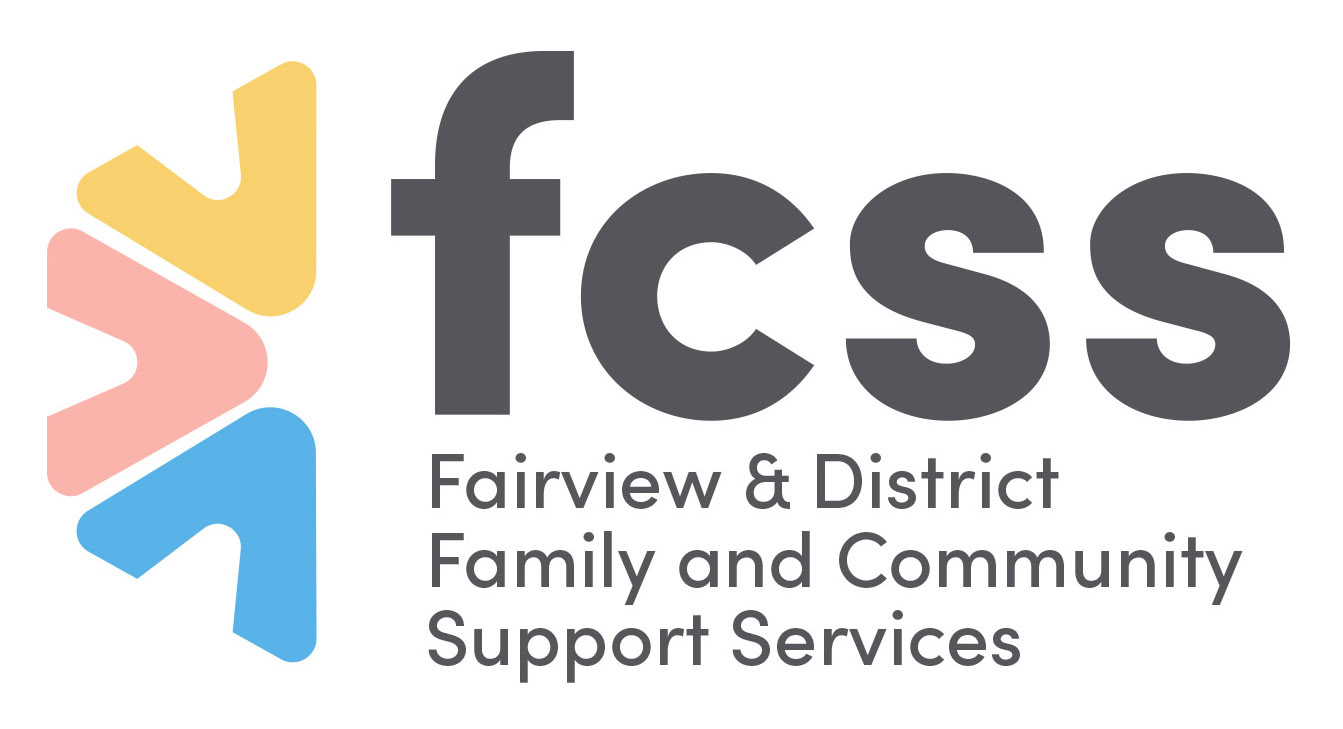volunteer driver program
The Fairview FCSS Volunteer Driver program is brand new, however, our program was modelled on successful FCSS Canmore and Whitecourt volunteer driver programs that have successfully operated for years. In this model, FCSS facilitates the connections between volunteers and riders, by recruiting participants, screening volunteers and clients and scheduling and booking trips. Transportation between municipalities has long been a recognized need and gap in services in our area. Especially with the cancellation of commercial bus services to Fairview. However, transportation programs can run into the millions of dollars annually, far beyond our modest budget, and mandate, as FCSS cannot directly fund transportation. This program model allows us to facilitate a not-for-profit ride share program by developing local volunteer capacity. Volunteer Drivers get reimbursed for mileage and get the benefit of “the helpers high” by assisting vulnerable community members. Clients get the benefit and ease of mind of this coordination as they can be assured that their driver has been screened and is trustworthy and that they will have a safe and pleasant ride- a win win! Would you like to volunteer or get assistance with rides? call us today- 780 835 5471.
How do Volunteer Programs Strengthen a Community?
Volunteer programs strengthen a community by creating engaged and connected communities which promotes individual and community level recovery and resiliency (Abramson, Grattan, Mayer, Colten, Arosemena, Bedimo-Rung, Lichtveld, 2015). Alberta’s growing senior population is increasingly facing depression and social isolation. Lack of accessible and cost-efficient transportation services can reduce opportunities to be socially active within the surrounding community. It can also present barriers in obtaining employment, education, and healthcare services (2020, Alberta Health Services, Mental Health Promotion & Illness Prevention). Access to transportation is listed as one of the mitigating factors of social isolation among vulnerable individuals. This program aims to reduce social isolation and lack of access to health care resources by providing access to transportation and medical appointments for vulnerable residents.
This overall strategy will create the outcome of a connected and engaged community because it will increase social engagement by:
1) community members knowing what is happening in their community
2)community members connecting with other community members
3)Community members feeling a stronger sense of belonging to their community
4)Community residents providing support to other community members
5) Community members helping one another
This is significant because recent peer reviewed research on resilience and recovery factors has indicated that: Access to social resources can activate resilience attributes that are inherent in individuals and communities, and in so doing lead to better psychological adjustment, health, and well-being. (Abramson, Grattan, Mayer, Colten, Arosemena, Bedimo-Rung, Lichtveld, 2015).
By promoting stronger, connected, and engaged communities, FCSS can promote positive health outcomes in its residents, and prevent negative ones, with the intent that by so doing less community members may experience a health or mental health crisis or may be able to deal with it more effectively if it does arise.

